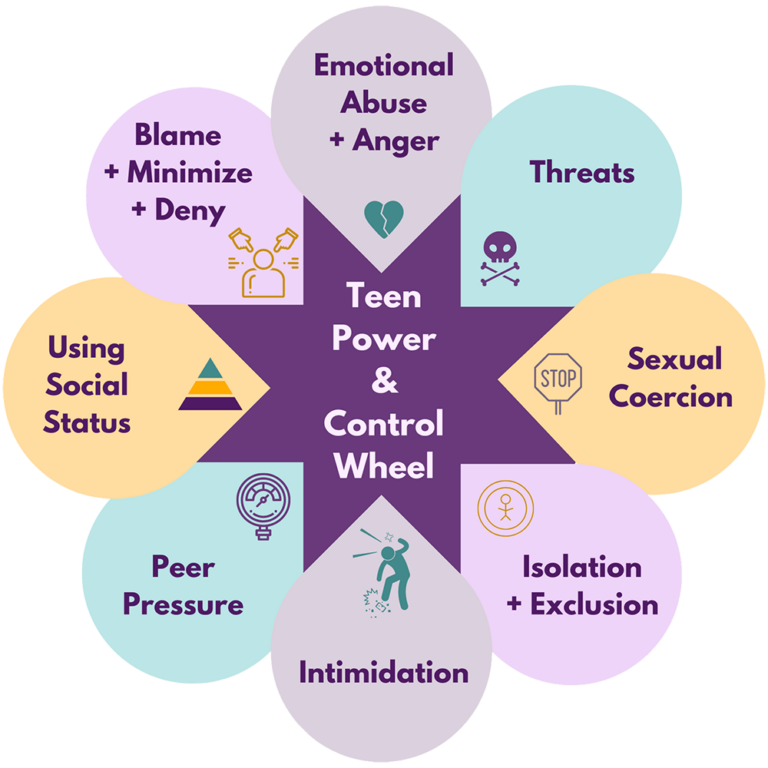Countless teenagers around the world, are affected by teen dating violence, one which is a silent epidemic and often overlooked. There is abuse in a relationship that goes beyond mere violence, as some experience it overtly and some in a subtle form. Imagine being in a relationship where fear replaces love. Where control overshadows affection. And where manipulation drowns your voice. This alarming truth is faced by many adolescents who become victims of abusive relationships that inflict severe emotional and physical damage. Although it is evident that most people perceive abuse solely in the context of violence, it takes on multiple forms in the context of adolescent relationships, such as emotional, verbal, sexual, and even digital abuse.
Statistics reveal the frightening scope of teen dating violence. According to the National Institute of Justice, nearly 26% of teens who are dating have experienced cyber abuse, 29.9% have faced physical violence, 47.2% have been subjected to psychological abuse, and 13% have been sexually coerced by their partner. The National Survey of Teen Relationships and Intimate Violence further reveals that 18% of teens have encountered physical violence, 60% have faced psychological abuse, and 18% have experienced sexual violence within a year of their relationships. In today’s digital age, teens are not only vulnerable to physical or emotional harm but also to cyberstalking, often receiving unwanted contacts through emails or social media platforms.

So, how do we know when a relationship has become unhealthy or what could be the ‘red flags’? The signs can sometimes be difficult to identify, but they are important nonetheless. Some of the major warning signs are excessive jealousy, controlling tendencies, isolation from social and family circles, and unwarranted and continuous criticism. Abusers manage to get their partners to blame themselves, making it harder for the victims to leave. In a healthy relationship, manipulation, control, and fears are replaced by communication, trust, and respect.
The psychological toll of dating violence goes well beyond the scope of the relationship. Victims tend to experience anxiety, depression, low self-esteem, and in some cases, post-traumatic stress disorder (PTSD). These consequences have the potential to continue throughout one’s life, affecting future interactions and trust. Worst case scenarios, the trauma that stems from dating violence can influence one’s life as an adult, impacting several aspects of life, including work, social life, and overall health.
The digital world has allowed abuse to shift into an entirely different form. An abuser can now spy on their partner from a distance by controlling their online activities, sending threatening messages, or coercing them to send explicit. Revenge porn and even minor sexts can easily lead to immense public shaming and inflict lifelong emotional trauma. From this, it is evident that there needs to be an emphasis on enforcement of boundaries online, such as safeguarding personal data, blocking abusive contacts, and accepting that privacy is a right, not a luxury.
Teen dating violence is unique in that there is a cycle of violence where each act serves to strengthen and deepen the relationship. As a possessive partner, there is the need to get control and exercise violence over the other. Most victims are emotionally captured in such relationships – they hang on hoping their partner will change or fear retaliation. People often never realize that love is not about power over someone else, and an abusive relationship is never a sign of love. Culturally rooted or peer inflicted toxic relationships cannot be justified. Outdated gender stereotypes serve to justify jealousy and possession as affection, blurring the line between love and domination.
Understanding legal rights is crucial in protecting against dating violence. There are numerous laws set in place to avoid harassment, assault, and even cyber abuse. Consent should not be given under duress, and no one should feel obligated to participate in any act they are hesitant about. Any form of abuse that occurs should be reported immediately to a trusted adult, school authority, or law enforcement. If a friend is in an abusive relationship, it is important to offer them support. Most victims feel trapped, embarrassed, or fearful, making it incredibly difficult for them to seek help. As a society, family members, or simply as friends, we have to offer a listening ear without judgment, giving them the reassurance that they truly need and ensuring that the appropriate help is available the moment they seek it.
Reference
Garg, R. (2020, November 8). Teen dating violence in India – iPleaders. iPleaders. https://blog.ipleaders.in/teen-dating-violence-india/#Official_reports_relating_to_Teen_Dating_Violence
